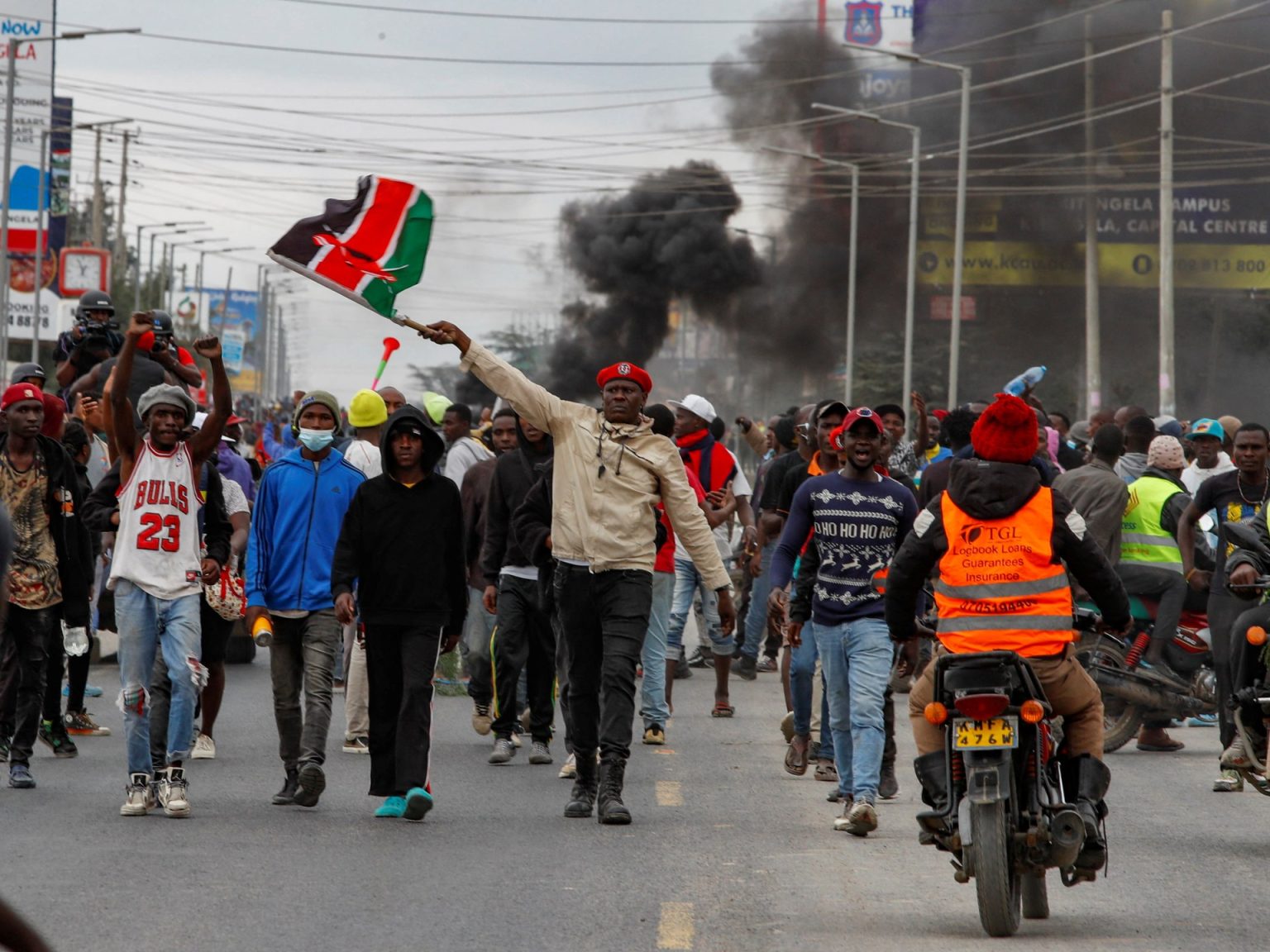In Nairobi, Kenya, youth protests against President William Ruto’s government have been ongoing for nearly a month. The demonstrations began in response to punitive tax proposals that triggered frustration among many Kenyans. The protesters, mostly young and marginalized, are demanding better governance, reduced corruption, and improved economic conditions. They criticize President Ruto for not fulfilling his promises of uplifting the economically disadvantaged and instead increasing taxes, leading to a higher cost of living. The protests escalated when police used tear gas, water cannons, and live bullets to disperse the crowds, resulting in casualties, including the death of four individuals allegedly by the police.
President Ruto eventually yielded to some demands by firing cabinet secretaries, reappointing half the cabinet, and enacting austerity measures. He also signed into law the process of reconstituting the Independent Electoral and Boundaries Commission, allowing Kenyans to recall unsatisfactory legislators. However, his actions have not quelled the anger among the protesters who continue to demand his resignation and better leadership. The protesters argue that they are not asking for unachievable goals but simply for accountability and improved governance from their elected leaders.
The young protesters, part of what is now popularly known as the Gen Z movement, are leaderless and transcending historic ethnic divisions and political party affiliations. They rely on digital activism to mobilize support and bring attention to their cause. Despite facing challenges such as infiltration by criminal gangs and violence, the protesters remain determined and relentless in demanding change. This persistence is exemplified by the tragic death of 12-year-old Kennedy Onyango, who was killed by a stray bullet during the protests, leaving his family devastated and their neighborhood in shock.
The protests have transformed Kenya, with a growing educated class of jobless youth demanding better economic opportunities and governance. The government’s response to the protesters will determine the country’s future trajectory and whether it can address the grievances of its citizens. The Gen Z movement is driven by a desire for jobs, accountability, and a more inclusive government that prioritizes the interests of all Kenyans. Despite facing challenges from security forces and pro-government factions, the protesters remain resolute in their calls for change and are willing to continue their demonstrations until their demands are met.
The ongoing protests have drawn attention to the need for reforms in Kenya’s political and economic systems, as well as ensuring the protection of protesters’ rights and safety. The protesters emphasize the importance of dialogue and meaningful engagement with the government to address the root causes of their grievances. As the demonstrations continue, the protesters’ message to President Ruto and the ruling class is clear: improve governance, address corruption, and prioritize the welfare of the people, or step aside. The youth-led movement is a reflection of the changing dynamics in Kenya and the growing demand for accountability and transparency in the country’s leadership.













